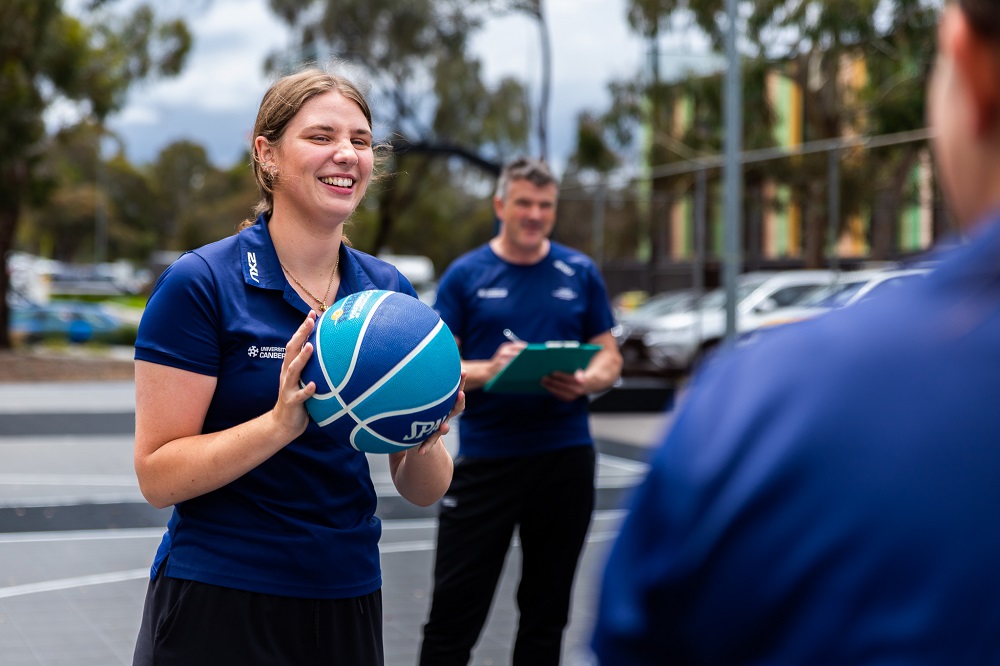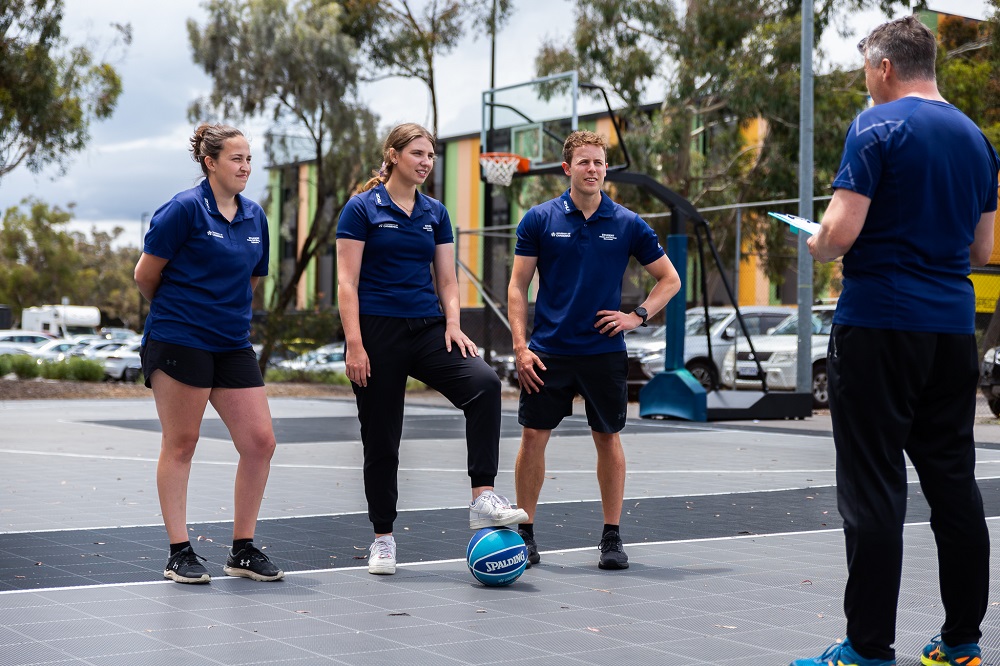Sport, Health & Wellbeing
UC physical education researchers changing the game
Dr John Williams has committed a large part of his career to changing the way Health and Physical Education is taught in schools, and he’s proud to see students at the University of Canberra jumping on board.
Through the Bachelor of Secondary Education (Health and Physical Education), John is hoping to produce teachers who understand the importance of the content they are relaying to their students, using a model called Pedagogical Content Knowledge (PCK).
In two units of the degree, John’s students participate in a group hybrid-placement for three hours a week, putting their knowledge of this concept into practice.
“There is so much more to PE than just teaching kids a sport and simply letting them play it, so we are helping our pre-service teachers understand the movement or life skills they are teaching that are underpinned by that with a sport. In other words any given sport is a vehicle through which purposeful learning occurs” says John.
“What’s been really striking are three students in particular, who have produced very high quality and impressive work with this model, and some of the best teaching I have seen in last eight years.”
The three students in question are Georgia Bye, Charlie Foran and Bethany Windsor – all third-year students in the Bachelor’s degree whose passion for teaching is obvious.
“This class has changed the way I see PE,” says Bethany. “In my experience, PE was very much about picking a sport, learning the rules and then playing it and I always thought that could get a bit boring.”
“I didn’t know much about this sort of thing before studying myself because we did just go and play a sport like soccer at school,” adds Georgia. “This unit has been a huge eye opener and makes me want to take those approaches into my own teaching.”
Working with students from Years 7 to 10, the group delivered one 50-minute lesson together per week for a period of eight weeks.
In total, they spent a three-hour block at the school each week with theory-based learning prior to holding the class, and time for reflection after.
Those lessons were planned by the students and based on helping the students build a specific attribute such as leadership or teamwork through a sport.
The University students explained that while you can build those qualities through playing sport and within a Physical Education setting, this model makes those aims and goals clear to the students through purposeful planning and delivery.
“Attributes like leadership or teamwork are often implicitly taught in PE, but we have learnt the importance of explicitly teaching and incorporating that in your lesson, so the students understand why they are doing what they’re doing,” Charlie explains.
“This model of teaching helps children see those attributes are transferrable to life outside of the school gates and gives them the confidence to live a healthy lifestyle in all aspects of their daily routine.”
There are a number of ACT schools signed up to this initiative, hosting the University students through their Physical Education courses.
The model, which has been taught at the University for around five years, hopes to engage even more students in Physical Education classes towards meaningful learning, rather than just those who are naturally athletic or interested in sport.
“The biggest thing I have learnt is having an academic focus to every lesson, because I think back to when it was raining in my PE and we would play a big game inside” Bethany said.
“Before now, I never thought about what students would get out of that and Maths and English don’t have to stop when it rains so why does PE?”
University students take part in the method of teaching through two consecutive units in their third year, Secondary Health and Physical Education PCK1 and PCK2.
John said seeing these students in action was an exciting example of the direction Physical Education is moving.
“Teachers are under a lot of pressure to deliver and change the curriculum so it’s not to judge those that aren’t delivering this method, but it’s exciting to see our students moving that way” he said.
“These students in particular have shown that you don’t need twenty years of experience to be an accomplished teacher – they can reach this level of competence early in their careers if they remain open to learning and have persistence and the right attitude.”
Words by Danielle Meddemmen, photos by Tyler Cherry.